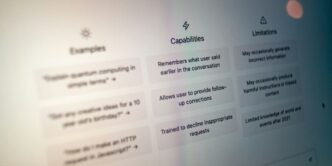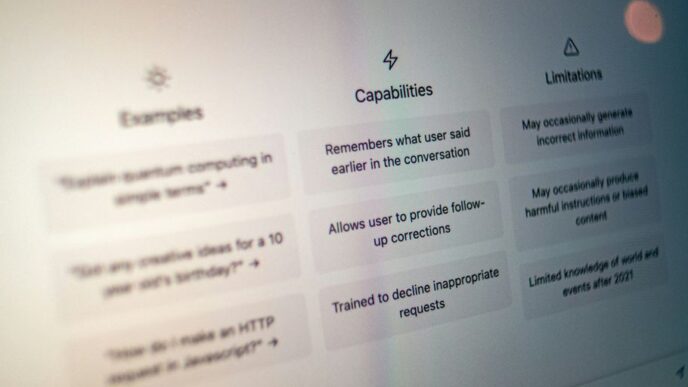In the 2024 presidential race, Donald Trump’s campaign is taking a bold step by using artificial intelligence (AI) in new and exciting ways. This approach not only changes how political messages are crafted but also how they reach and engage voters. From creating personalized content to using advanced data analysis, AI is reshaping the landscape of political advertising, making it more effective and targeted than ever before.
Key Takeaways
- AI helps create personalized messages that connect better with voters.
- Brad Parscale believes AI can change how campaigns are run, making them more efficient.
- Generative AI is used to create unique campaign content like memes and ads.
- Trump’s campaign uses AI to raise funds and engage supporters effectively.
- There are growing concerns about the ethics of using AI in political advertising.
The Role of AI in Donald Trump’s 2024 Presidential Campaign
AI-Driven Personas for Targeted Messaging
In the 2024 campaign, AI is helping shape how messages are crafted. By using AI-driven personas, the campaign can create messages that connect emotionally with different voter groups. This means they can tailor their communication to what people really want to hear, making it more effective.
Leveraging Data Science for Voter Engagement
Data science plays a crucial role in engaging voters. The campaign analyzes vast amounts of data to understand voter preferences and behaviors. This helps them to:
- Identify key issues that matter to voters.
- Create personalized outreach strategies.
- Optimize their advertising spend for better results.
AI-Powered Fundraising Strategies
Fundraising has also been transformed by AI. The campaign uses advanced algorithms to identify potential donors and predict their giving behavior. This allows them to:
- Target specific groups with tailored messages.
- Increase the efficiency of fundraising efforts.
- Build stronger relationships with supporters.
The integration of AI in political campaigns is not just about technology; it’s about understanding and connecting with the electorate on a deeper level.
Overall, AI is revolutionizing how Trump’s campaign approaches political advertising, making it more personalized and data-driven.
Brad Parscale’s Vision for AI in Political Campaigns
Revolutionizing Polling and Campaigning
Brad Parscale, who played a key role in Trump’s 2016 victory, believes that AI will transform how campaigns operate. He envisions a future where traditional polling methods are replaced by advanced AI tools that can analyze voter sentiment more accurately. This shift aims to create a more responsive and effective campaign strategy.
Building Independent AI Infrastructure
Parscale emphasizes the need for campaigns to develop their own AI systems. He argues that relying on mainstream media and established tech companies limits their reach. Instead, he advocates for creating:
- Custom email systems
- Targeted texting platforms
- Unique ad distribution channels
This approach allows campaigns to connect directly with their audience without outside interference.
Challenges and Criticisms
Despite the potential benefits, Parscale’s vision faces skepticism. Critics point out that the use of AI in politics can lead to ethical concerns, especially regarding misinformation. Additionally, there are worries about the impact of AI-generated content on voter trust and the overall democratic process.
"AI has the power to change the game, but it also comes with responsibilities that must not be ignored."
In summary, Brad Parscale’s approach to AI in political campaigns is ambitious, aiming to leverage technology for more effective voter engagement and fundraising. However, it also raises important questions about ethics and accountability in the political landscape.
Generative AI and Its Impact on Political Advertising

Creating Hyper-Personalized Campaign Content
Generative AI is changing how political messages are crafted. It allows campaigns to create tailored content that speaks directly to individual voters. This means that ads can be customized based on a person’s interests, location, and even their past voting behavior. Here are some ways this technology is being used:
- Personalized Messaging: Campaigns can send messages that resonate with specific groups.
- Rapid Content Creation: AI can generate multiple versions of an ad quickly, allowing for A/B testing to find the most effective one.
- Data-Driven Insights: By analyzing voter data, campaigns can better understand what messages will work best.
AI-Generated Memes and Their Influence
Memes have become a powerful tool in political advertising. Generative AI can create memes that are not only funny but also impactful. These memes can spread quickly on social media, reaching a wide audience. Some key points include:
- Viral Potential: Memes can go viral, increasing a campaign’s visibility.
- Cultural Relevance: AI can help create content that resonates with current events and trends.
- Engagement: Memes often encourage sharing and interaction, making them effective for engagement.
Ethical Concerns and Misinformation
While generative AI offers many benefits, it also raises important ethical questions. The potential for misinformation is a significant concern. Here are some issues to consider:
- Manipulation: AI can create misleading content that may sway voters unfairly.
- Transparency: There is a need for clear labeling of AI-generated content to avoid confusion.
- Public Trust: As AI becomes more prevalent, maintaining trust in political messaging is crucial.
The American public is on alert about artificial intelligence and the 2024 election. This awareness highlights the need for responsible use of technology in political advertising.
In summary, generative AI is reshaping political advertising by enabling hyper-personalized content, leveraging memes for engagement, and raising ethical concerns that must be addressed to maintain public trust.
AI Tools and Techniques Used in the 2024 Election Cycle
Chatbots and Automated Communication
In the 2024 election cycle, chatbots have become essential for campaigns. They help in:
- Answering voter questions quickly.
- Engaging with supporters 24/7.
- Collecting feedback and data from interactions.
These tools allow campaigns to maintain a constant connection with voters, making communication more efficient.
AI-Enhanced Speech and Ad Copywriting
AI is also transforming how political messages are crafted. Campaigns are using AI to:
- Generate compelling speeches tailored to specific audiences.
- Create ads that resonate emotionally with voters.
- Analyze the effectiveness of different messages in real-time.
This approach ensures that the content is not only relevant but also impactful.
Advanced Data Analysis for Campaign Strategies
Data analysis powered by AI is crucial for understanding voter behavior. Campaigns utilize AI to:
- Segment voters based on preferences and demographics.
- Predict election outcomes using historical data.
- Optimize resource allocation for maximum impact.
By leveraging these insights, campaigns can make informed decisions that enhance their chances of success.
The integration of AI in political campaigns is reshaping how candidates connect with voters, making strategies more data-driven and personalized.
In summary, the use of AI tools in the 2024 election cycle is revolutionizing how campaigns operate, from communication to strategy. As we see more AI in elections, it’s clear that these technologies are becoming indispensable for political success.
Comparing AI Adoption Between Republican and Democratic Campaigns
Republican Strategies and Innovations
Republican campaigns have been quick to embrace AI technologies for various purposes. They often focus on:
- Hyper-personalized messaging to engage voters more effectively.
- Utilizing data analytics to understand voter behavior and preferences.
- Relying on Super PACs to fund advanced AI tools that smaller campaigns might not afford.
Democratic Approaches to AI
Democratic campaigns, on the other hand, tend to be more cautious. They emphasize:
- The need for government regulation to ensure ethical use of AI.
- Concerns about misinformation and the potential for AI to mislead voters.
- A focus on traditional campaign methods while slowly integrating AI tools.
Potential for Future AI Integration
Both parties recognize the potential of AI, but their approaches differ:
- Republicans are more likely to experiment with generative AI for creative content, such as memes, which are becoming a staple in their campaigns.
- Democrats are still figuring out how to effectively use AI while ensuring ethical standards are met.
| Aspect | Republican Campaigns | Democratic Campaigns |
|---|---|---|
| AI Adoption | High | Moderate |
| Focus Areas | Personalization, Fundraising | Regulation, Ethical Use |
| Use of Generative AI | Frequent (e.g., memes) | Limited (mostly for productivity) |
The landscape of political advertising is changing rapidly, and both parties must adapt to the new realities of AI in campaigns.
In summary, while Republicans are leading in the adoption of AI for creative and fundraising strategies, Democrats are taking a more cautious approach, focusing on regulation and ethical considerations. The future will likely see both parties evolving their strategies as they navigate the complexities of AI in political advertising.
The Future of AI in Political Campaigns
Predictions for AI’s Role in Elections
The future of AI in political campaigns looks bright. Experts believe that AI will transform how candidates connect with voters. As technology advances, we can expect to see:
- More personalized messages tailored to individual voters.
- Enhanced data analysis to understand voter behavior better.
- AI tools that help candidates engage with their audience in real-time.
Technological Advancements on the Horizon
New technologies are emerging that will change the landscape of political advertising. Some key advancements include:
- Generative AI for creating unique campaign content.
- AI-driven chatbots for instant communication with voters.
- Advanced algorithms for predicting voter preferences.
Balancing Innovation with Ethical Considerations
As AI becomes more integrated into campaigns, ethical concerns will arise. It’s crucial to:
- Ensure transparency in how data is used.
- Avoid misinformation and manipulation of voters.
- Maintain a balance between innovation and ethical practices.
The integration of AI in political campaigns is not just about technology; it’s about understanding its impact on democracy and voter trust.
In summary, the future of AI in political campaigns is promising, but it requires careful consideration of its implications for society. The use of AI-driven insights will likely reshape how campaigns operate, making them more effective and engaging for voters.
Conclusion
In summary, the use of AI in Trump’s 2024 campaign is changing how political advertising works. By creating personalized messages and using data to connect with voters, the campaign is trying to stand out. This approach not only helps in reaching supporters more effectively but also challenges traditional methods used by political consultants. As AI tools become more common, they could reshape future campaigns, making them more focused on what voters really want. The impact of these strategies will be closely watched as the election approaches.
Frequently Asked Questions
How is AI being used in Trump’s 2024 campaign?
Trump’s campaign is using AI to create targeted messages that connect better with voters. They analyze data to understand what people want to hear and adjust their communication accordingly.
Who is Brad Parscale and what is his role in the campaign?
Brad Parscale is a political consultant who previously helped Trump win in 2016. He is now focusing on using AI to improve campaign strategies, including fundraising and voter engagement.
What is generative AI and how does it affect political ads?
Generative AI creates personalized content for campaigns, like ads and social media posts. This technology allows campaigns to connect with voters in a more engaging way.
What are some tools used in the 2024 election?
Campaigns are using chatbots for communication, AI to write speeches and ads, and advanced data analysis to refine their strategies.
How do Republican and Democratic campaigns compare in using AI?
Republican campaigns seem to be more advanced in using AI tools, while Democrats are still figuring out how to effectively use these technologies.
What does the future hold for AI in politics?
As AI technology continues to grow, it will play an even bigger role in future elections, but there are concerns about ethics and misinformation.













